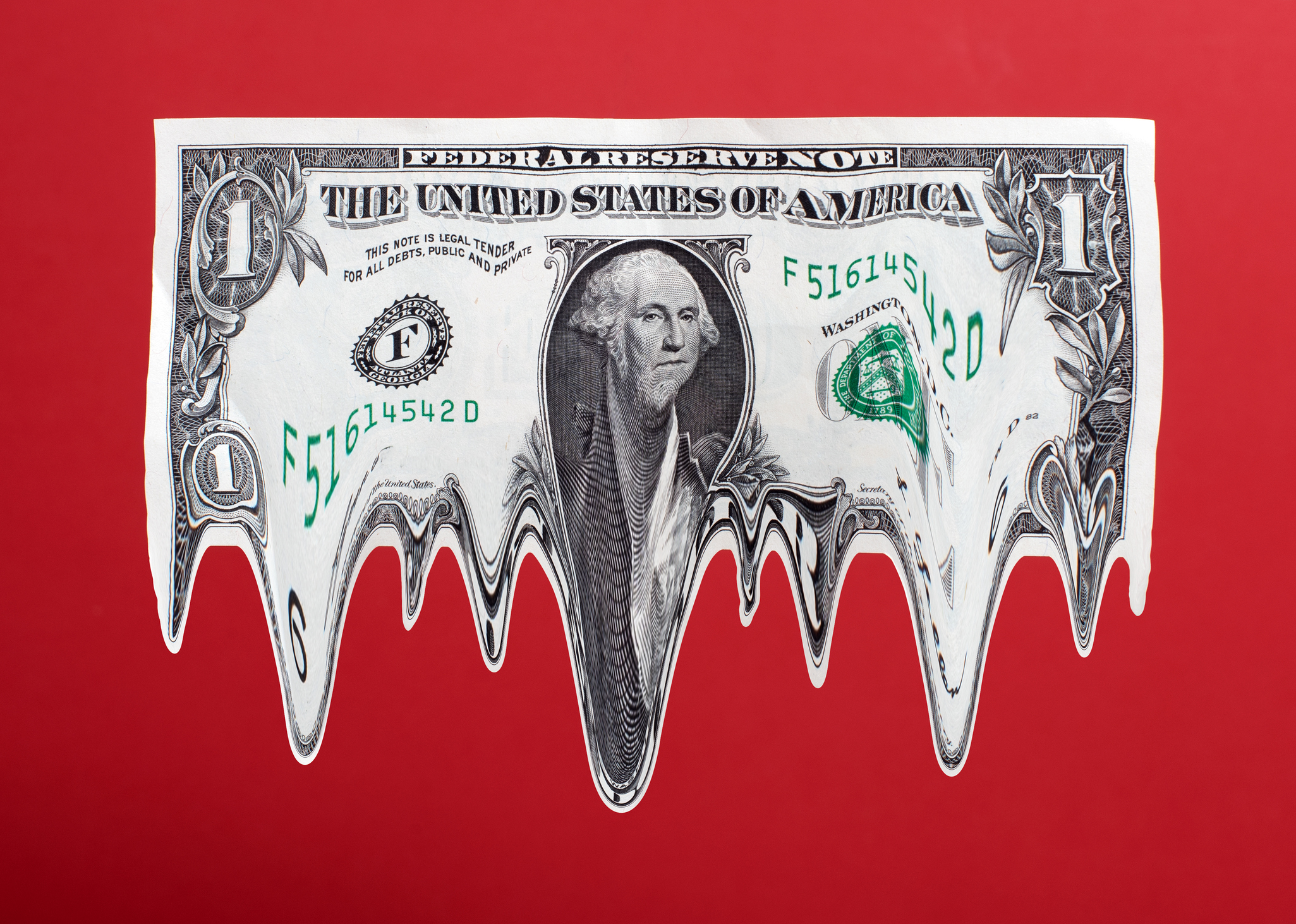Global stockmarkets pause for breath
Global markets plunged on Monday as investors feared the Covid-19 Delta variant could derail the recovery.

Get the latest financial news, insights and expert analysis from our award-winning MoneyWeek team, to help you understand what really matters when it comes to your finances.
You are now subscribed
Your newsletter sign-up was successful
Want to add more newsletters?

Twice daily
MoneyWeek
Get the latest financial news, insights and expert analysis from our award-winning MoneyWeek team, to help you understand what really matters when it comes to your finances.

Four times a week
Look After My Bills
Sign up to our free money-saving newsletter, filled with the latest news and expert advice to help you find the best tips and deals for managing your bills. Start saving today!
“There is now a feeling that the UK could be staring at a fresh Autumn lockdown,” says Susannah Streeter of Hargreaves Lansdown. “Far from giving investors a jolt of confidence, Freedom Day has seen it evaporate, as sharply rising infection rates disrupt businesses.”
The pandemic strikes again
Global markets plunged on Monday as investors feared the Delta variant could derail the recovery. The FTSE 100 fell by 2.3% to close below 7,000. The FTSE 250 dropped by 2.2%. Aviation and leisure stocks were among the worst hit.
The pan-European Stoxx 600 had its worst day of the year so far. America’s S&P 500 retreated by 1.6%. The US ten-year Treasury bond yield fell to 1.18% as prices rose, the lowest level in five months. Japan’s Nikkei 225 index hit a six-month low on Tuesday.
MoneyWeek
Subscribe to MoneyWeek today and get your first six magazine issues absolutely FREE

Sign up to Money Morning
Don't miss the latest investment and personal finances news, market analysis, plus money-saving tips with our free twice-daily newsletter
Don't miss the latest investment and personal finances news, market analysis, plus money-saving tips with our free twice-daily newsletter
The message from bond markets seems clear, says John Authers on Bloomberg. “Forget about the inflation scare” and “abandon hopes for a strong reopening and economic recovery”. That might seem surprising given recent inflation data, but the Delta variant is driving an enormous surge of cases in the UK.
Only high vaccination rates are preventing another devastating wave of hospitalisations. That bodes ill for places with low vaccination rates, not least parts of the US. The spread of the Delta variant is an especially urgent worry in emerging markets, says William Jackson of Capital Economics. Asia is currently in the eye of the storm. Low vaccination rates mean “much of Latin America” and “other parts of Asia and Africa” look vulnerable, which will slow down their recoveries.
Markets pause for breath
The FTSE’s wobble is a reminder that “escape from an unfree, restricted economy is likely to be a messy affair”, says Nils Pratley in The Guardian. The “pingdemic” is hitting everything from pubs to factories. We still don’t know for sure whether “the lifting of most coronavirus restrictions really will be ‘irreversible’”. As Deutsche Bank puts it, this is all something of an “experiment”. While we wait to see the results, expect “a volatile summer for stockmarkets”. Don’t panic – markets are just entering the “mid-cycle”, says Andrew Sheets of Morgan Stanley. After a very strong recovery over the last 16 months it was inevitable that things would cool down at some point. Never mind the growth worries, “we think that the global recovery will keep pushing on”.
“The easy money has been made in this market,” says Nicholas Jasinski in Barron’s. Wall Street’s favourite “buzzy phrase” right now is “peak growth”. The idea is that growth in “corporate earnings, US gross domestic product, stock prices… and inflation” have all peaked for the cycle.
While the first stage of the post-pandemic rebound lifted all boats, investors must now be more discriminating. They will look for stocks that can “stand the negative impacts of hot inflation and shifting monetary policy”. The answer? Big Tech, out of favour for much of this year, could soon be back in vogue.
Get the latest financial news, insights and expert analysis from our award-winning MoneyWeek team, to help you understand what really matters when it comes to your finances.
Alex is an investment writer who has been contributing to MoneyWeek since 2015. He has been the magazine’s markets editor since 2019.
Alex has a passion for demystifying the often arcane world of finance for a general readership. While financial media tends to focus compulsively on the latest trend, the best opportunities can lie forgotten elsewhere.
He is especially interested in European equities – where his fluent French helps him to cover the continent’s largest bourse – and emerging markets, where his experience living in Beijing, and conversational Chinese, prove useful.
Hailing from Leeds, he studied Philosophy, Politics and Economics at the University of Oxford. He also holds a Master of Public Health from the University of Manchester.
-
 Early signs of the AI apocalypse?
Early signs of the AI apocalypse?Uncertainty is rife as investors question what the impact of AI will be.
-
 Reach for the stars to boost Britain's space industry
Reach for the stars to boost Britain's space industryopinion We can’t afford to neglect Britain's space industry. Unfortunately, the government is taking completely the wrong approach, says Matthew Lynn
-
 Profit from MSCI – the backbone of finance
Profit from MSCI – the backbone of financeAs an index provider, MSCI is a key part of the global financial system. Its shares look cheap
-
 'AI is the real deal – it will change our world in more ways than we can imagine'
'AI is the real deal – it will change our world in more ways than we can imagine'Interview Rob Arnott of Research Affiliates talks to Andrew Van Sickle about the AI bubble, the impact of tariffs on inflation and the outlook for gold and China
-
 Three promising emerging-market stocks to diversify your portfolio
Three promising emerging-market stocks to diversify your portfolioOpinion Omar Negyal, portfolio manager, JPMorgan Global Emerging Markets Income Trust, highlights three emerging-market stocks where he’d put his money
-
 Exciting opportunities in biotech
Exciting opportunities in biotechBiotech firms should profit from the ‘patent cliff’, which will force big pharmaceutical companies to innovate or make acquisitions
-
 What turns a stock market crash into a financial crisis?
What turns a stock market crash into a financial crisis?Opinion Professor Linda Yueh's popular book on major stock market crashes misses key lessons, says Max King
-
 The state of Iran’s collapsing economy – and why people are protesting
The state of Iran’s collapsing economy – and why people are protestingIran has long been mired in an economic crisis that is part of a wider systemic failure. Do the protests show a way out?
-
 The rise and fall of Nicolás Maduro, Venezuela's ruthless dictator
The rise and fall of Nicolás Maduro, Venezuela's ruthless dictatorNicolás Maduro is known for getting what he wants out of any situation. That might be a challenge now
-
 New year, same market forecasts
New year, same market forecastsForecasts from banks and brokers are as bullish as ever this year, but there is less conviction about the US, says Cris Sholto Heaton